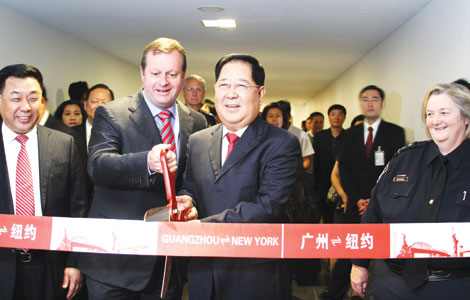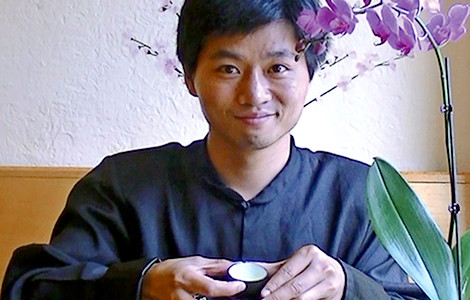Japan in new air zone intrusion
Updated: 2014-08-08 03:26
By ZHANG YUNBI (China Daily)
|
||||||||
Air patrols stepped up by Beijing after Tokyo's 'reconnaissance' move
China increased air patrols after Japanese military aircraft intruded into the East China Sea Air Defense Identification Zone on Wednesday, the air force said.
The incident is the latest case of Japanese military planes entering the zone since it was established in November.
Air Force spokesman Shen Jinke said on Thursday that several groups of Japanese Self-Defense Force planes entered the zone for "extensive reconnaissance", and Chinese military aircraft immediately tracked them and monitored their flight paths.
Japanese F-15 aircraft twice attempted to approach Chinese planes that were conducting routine patrols in the zone, and the Chinese planes took "reasonable, proper and restrained" measures to cope with the threat, Shen said.
Observers said Beijing had released news of the intrusion quickly to leave Tokyo with little room to make malicious accusations, showing there is sufficient confidence in boosting transparency on maritime security.
The Japanese Ministry of Defense told Reuters it had no information about the incident.
Japan, which established its own air defense identification zone decades ago, has routinely accused Chinese planes of flying too close to Japanese military aircraft, but experts say Japanese aircraft have behaved provocatively.
Lyu Yaodong, a research fellow on Japanese diplomacy at the Chinese Academy of Social Sciences, said Japan lacks a balanced mindset and reasoned strategic conceptions. This attitude hinders attempts to ease frayed relations, he said.
Lyu added that Japan had "undermined balance in the region" and had tried to sabotage China's efforts to safeguard territorial sovereignty and maritime security.
Shen said, "The air force has carried out monitoring and identification of foreign military aircraft entering the zone and has taken corresponding measures in response to different threats, effectively safeguarding national air defense security."
Zhang Junshe, deputy director of China's Naval Military Studies Research Institute, said there are indications that "Japan has become a destabilizing factor, and it may cause bigger trouble in the future".
Japan is in no way qualified to blame China, Zhang said.
Defense Ministry spokesman Geng Yansheng said on May 24 that Japanese military aircraft had intruded into the zone more than 10 times.
In an annual defense policy white paper released on Tuesday, the Japanese Defense Ministry denounced the Chinese zone as "unilaterally changing the status quo".
zhangyunbi@chinadaily.com.cn

 Grand opening
Grand opening
 China Southern launches Guangzhou-New York service
China Southern launches Guangzhou-New York service
 Chinese cadets' numbers rise in US military academies
Chinese cadets' numbers rise in US military academies
 US funded Chinese fashion website targets a new customer segment
US funded Chinese fashion website targets a new customer segment
 'Dr Tea' takes on the US
'Dr Tea' takes on the US
 NYC spurs small business
NYC spurs small business
 US-Africa summit starts with development fora
US-Africa summit starts with development fora
 Two double-decker buses collide in New York
Two double-decker buses collide in New York
Most Viewed
Editor's Picks

|

|

|

|

|

|
Today's Top News
China Southern's new NYC flight 'a gift'
Compromise called for in Sino-US ties
Firms are asked to cooperate antitrust probes
Real names now required for WeChat and other IMS
Rescuers race to save lives as quake toll nears 600
589 dead as strong quake jolts SW China
China to punish Chrysler, Audi for anti-trust violations
US interest in Africa grows
US Weekly

|

|







